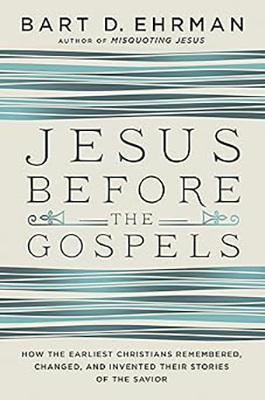Jesus Before The Gospels
“Jesus Before the Gospels: How the Earliest Christians Remembered, Changed, and Invented Their Stories of the Savior” is a book by Bart D. Ehrman, published in 2016. Here’s a summary of its key themes and concepts:
Oral Tradition and Memory: Ehrman explores how the stories and teachings about Jesus were transmitted orally before they were written down in the Gospels. He examines the role of memory and oral tradition in shaping the early Christian narratives.
Formation of Gospel Accounts: The book discusses how the Gospel accounts of Jesus (Matthew, Mark, Luke, and John) were composed, drawing on various sources and traditions. Ehrman examines the processes of remembering, changing, and possibly inventing stories about Jesus within the early Christian communities.
Social and Cultural Context: Ehrman situates the development of Gospel narratives within the social and cultural contexts of the ancient Mediterranean world. He considers factors such as theological beliefs, community practices, and the influence of Greco-Roman storytelling conventions.
Reliability and Historicity: The book critically evaluates the reliability and historicity of the Gospel accounts. Ehrman discusses discrepancies between the Gospels, variations in manuscript traditions, and the implications for understanding the historical Jesus.
Memory Studies and Psychology: Drawing on insights from memory studies and psychology, Ehrman explores how memories can be shaped, altered, and influenced over time. He considers the implications of these findings for interpreting the Gospel narratives as historical documents.
Impact of Memory on Christian Beliefs: Ehrman examines how the formation of Gospel stories influenced early Christian beliefs, doctrines, and practices. He discusses the theological interpretations and implications of the Gospel narratives within the context of evolving Christian communities.
Scholarly Perspective: As a prominent scholar of early Christianity and textual criticism, Ehrman provides a scholarly analysis of the formation and transmission of the Gospel traditions. He engages with current debates and research in the field to offer insights into the complexities of early Christian history.
Overall, “Jesus Before the Gospels” offers readers a deeper understanding of how the stories about Jesus were remembered, transmitted, and transformed within the early Christian communities before they were eventually recorded in written form. It challenges readers to reconsider assumptions about the reliability and interpretation of the Gospel accounts while highlighting the dynamic nature of oral tradition and memory in shaping religious narratives.

